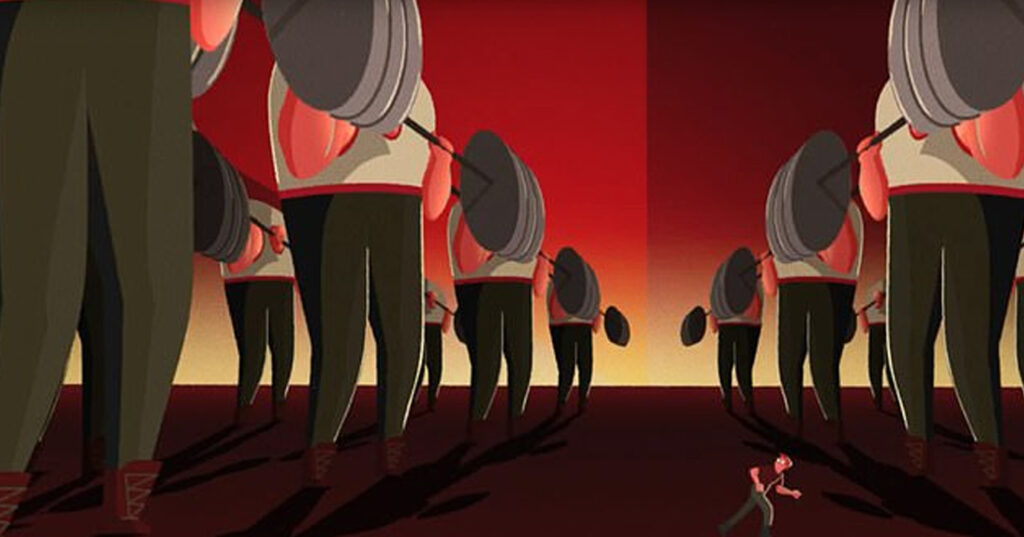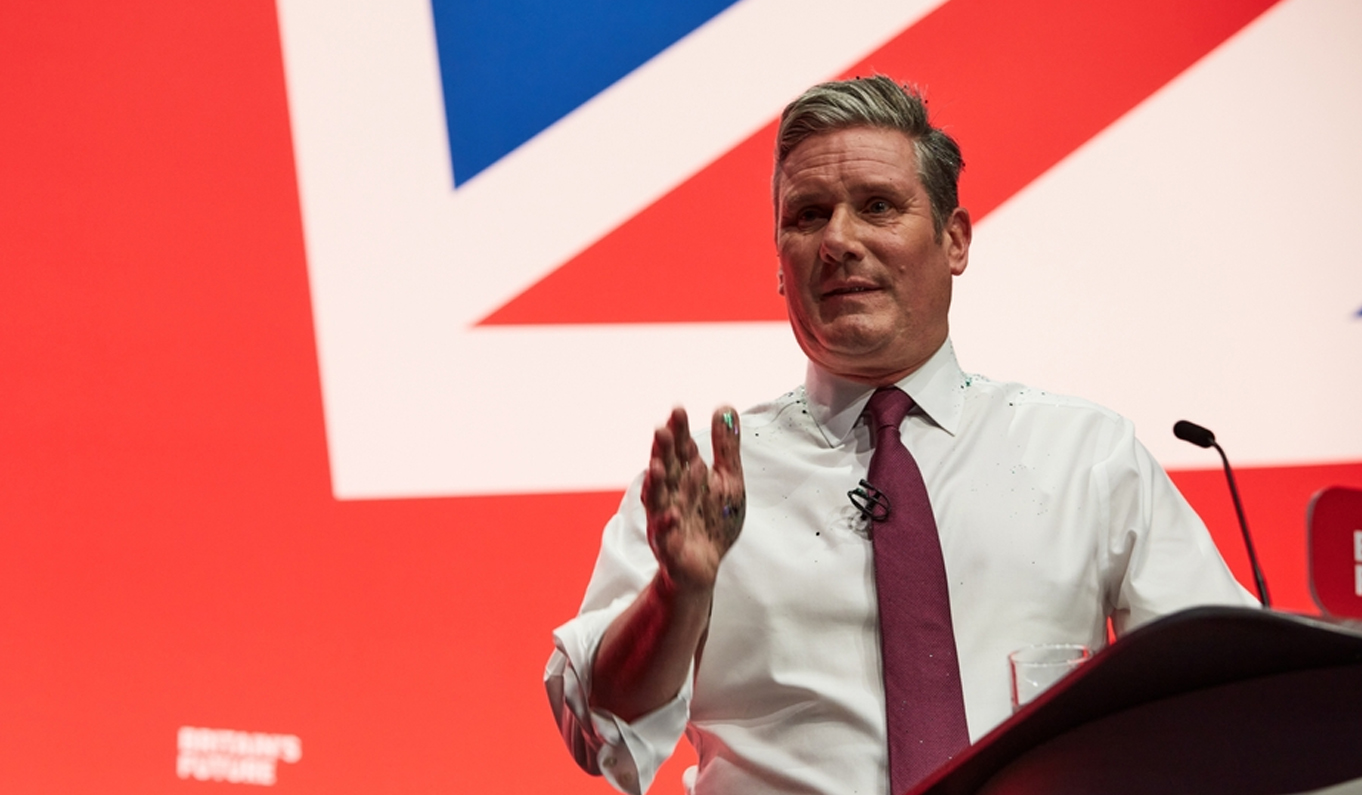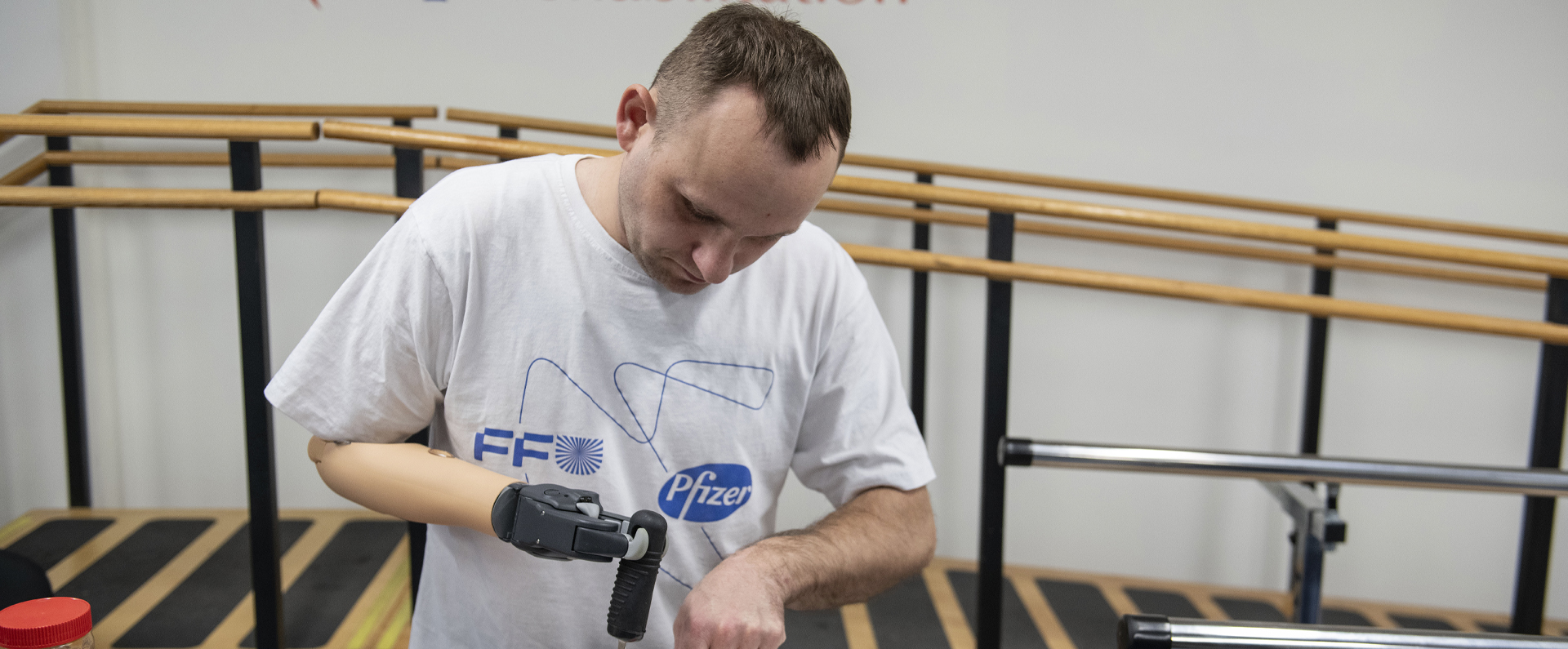
First published in the Daily Mail on Monday 24 September 2018.
Shot down by the PC brigade: As recruits to Britain’s shrinking armed forces are told it’s ‘okay to cry’ and have a wobbly belly, Russian troops come out of training ‘made of steel’, claims a new book
- An explosive new book dares to ask if Britain’s Armed Forces are fit for purpose
- Lord Ashcroft and Isabel Oakeshott revealed how cuts have left us exposed
- In today’s extract, they highlight a new threat — political correctness…
Are Britain’s Armed Forces fit for purpose? An explosive new book dares to ask the question. On Saturday, in the first part of our exclusive serialisation, the authors, Lord Ashcroft and Isabel Oakeshott, revealed how spending cuts have left us perilously exposed in the face of renewed Russian aggression. In today’s extract, they highlight a new threat — political correctness.
At Army Headquarters in Andover, General Sir Nick Carter, then Chief of the General Staff, sat down with the executive committee of the Army Board to discuss a pressing issue. Why, despite its illustrious pedigree, was the British Army in the middle of its worst manpower crisis for decades?
Was it the dilapidated accommodation that senior MPs publicly labelled ‘disgraceful’? The modest pay, which General Carter once privately admitted to junior officers was ‘crap’ and had fallen every year in real terms since 2010?
Could they blame Capita, the company which had made such a mess of its lucrative contract to boost recruitment that many would-be soldiers just gave up in disgust?
What about the cost-cutting canning of overseas training exercises in Canada and Belize, a career highlight for many soldiers? Replacing these foreign adventures with Xbox-style simulations hardly made the job more attractive.
The bright sparks on the board scratched their heads and hit on another explanation: the Army’s image, which they concluded did not appeal to a generation of young people with diverse religious backgrounds, gender identities and sexualities.
Old advertisements, like those from 1976, in which a soldier says ‘I wondered if I’d ever get through those first few weeks… I ached in places I didn’t know I could ache’, were deemed unfit for the modern world in which some youngsters are less physically fit and emotionally robust than others.
As usual the Army was strapped for cash but, digging deep, the board found just under £2 million to commission a campaign that would emphasise ‘belonging and team-building’.
Inside the Ministry of Defence, everyone involved seemed happy with the finished product: a series of touchy-feely videos to pump out on social media which stressed that, in the modern Army, it was ‘OK to cry’ and there was ‘always someone to talk to’.
Those with wobbly bellies instead of six-packs were assured they didn’t have ‘to be a Superman to join the Army’.
Had the board left it at that, they would probably have got away with it. But they went further, ditching the ‘Be the Best’ slogan that had served the Army well since 1993. It was dismissed it as ‘dated, elitist and non-inclusive’.
When Defence Secretary Gavin Williamson, who had been in post for just under two months, heard about the plan, all hell broke loose. It would not happen on his watch.
He demanded the slogan stay — but the damage had been done. Questions were being raised about the culture in the Armed Forces today and the suggestion that a sense of belonging was more important than the ultimate mission — to engage and destroy the Queen’s enemies.
One tattooed, no-nonsense army sergeant took to Twitter to suggest his men were being misrepresented: ‘Not much crying going on.’
The thinking behind the controversial recruitment campaign was well-intentioned, just like the edict to hoist the rainbow-coloured LGBT flag on parade grounds to mark Gay Pride month.
This made some in the Armed Forces — to whom flags are neither political nor decorative, but symbols of ‘life or death’ allegiance — deeply uncomfortable. There was a backlash on several military bases.
A Royal Marine said: ‘This was an issue, not because anyone has a problem with gay soldiers in the military, but because we felt we were being asked to make a political statement.
‘To soldiers, flags are sacred. The feeling was that top brass were using them to virtue-signal.’
Yet all these efforts to re-brand the Armed Forces were a logical response to a real problem. Despite years of making people redundant, the Army, Navy and RAF all face a recruitment crisis.
In the past year, 12,360 people joined the UK regular Armed Forces, but 15,170 left. The Royal Navy and the RAF are running 10 per cent short of their annual recruitment targets, while the Army has a deficit of 31 per cent. This is partly a peacetime problem. Wars help recruitment, appealing to patriots, thrill-seekers and adventurers. The Armed Forces did not have a problem attracting personnel during the Iraq and Afghanistan wars.
Now unemployment is at a record low; society is ageing; more young people go to university and ethnic minority groups are wary of joining the military. No wonder top brass are trying to cast the widest possible net. The question is whether they might be compromising the UK’s ability to win wars.
Training is designed to be tough. Pushing a bayonet into another human being doesn’t come naturally. Recruits are put through physical hell, crawling through dirt and ditches, hauling themselves along the ground in a press-up position and sprinting back and forth.
During bayonet training, they are marshalled into lines in front of straw-filled bags and ordered to charge and stab with all their might, chanting ‘Kill! Kill! Kill!’
The instructors’ language is inevitably fruity. This is what transforms polite young men and women from civilians to soldiers.
Far from being traumatised, many cadets cite exercises in which they are pushed to their physical and mental limits as highlights of their training. They relish the challenge and believe few of those who join up expect — or want — to be treated like civilian workers.
‘If you don’t like the heat, get out of the fire. The Army is NOT the place for you,’ says one Sandhurst cadet bluntly.
In this attitude, surprisingly, young members of the Forces appear to be increasingly at odds with their elders. They are quietly contemptuous of what they see as an obsession with political correctness on the part of politicians and the chain of command.
One disgruntled soldier pointed to a blog by a civil servant on the Ministry of Defence’s website which said straight colleagues should all take a training course on LGBT issues to ‘explore your conscious and unconscious biases and make you think about how your behaviour and use of language can make others feel less included’.
The soldier considered it unnecessary and ridiculous.
The application of politically correct edicts has given rise to a worrying narrative, both inside and outside the military, that the British Armed Forces are ‘going soft’.
At all levels, but particularly in lower ranks, there are mounting concerns over the tension between wise and necessary reforms to ensure the military is an employer fit for the 21st century, and training recruits to survive in battle.
As one put it: ‘There are no effing safe spaces in Afghanistan. You think the Taliban would care about hurting our feelings?’
The depth of frustration among ordinary serving personnel about these changes, and the extent to which they believe such preoccupations are literally weakening the British Armed Forces, has found voice on Army message boards.
As one contributor pointed out, if a commanding officer ordered his men to switch off their radios on the battlefield to allow a Muslim comrade to pray (as per a scene in one of the new recruitment ads), they would all be at risk, since the radio communication systems deliver instructions and warnings of incoming enemy fire.
There is particular disquiet among ordinary servicemen and women at what they see as a fixation with LGBT rights.
‘When I’m asked how I want to be described, I feel like saying I’m transgender, so that I can get promoted. Perhaps I should say I identify as a goldfish. It’s become ridiculous,’ according to one young serviceman.
For the Ministry of Defence and defence chiefs, all this is a very difficult balance. The shocking death of four trainees at Deepcut Barracks in Surrey between 1995 and 2002, amid claims of systematic bullying, rightly led to much soul-searching about the welfare of young recruits.
An independent review concluded that the Army failed in its duty of care. This had a lasting impact on the culture at military bases — for the better.
However, a ‘zero-tolerance’ approach to bullying has had a significant impact on the nature and level of aggression considered acceptable during training exercises. Privately, young officers and soldiers frequently express concerns about how this might play out on the battlefield.
It would be easier to dismiss suggestions that the Armed Forces are ‘going soft’ were it not for the extraordinary number of serving personnel who are officially classified as unfit to send to war.
In January this year, a total of 27,071 full-time trained members of the Armed Forces, including 17,054 members of the Army, were medically downgraded, around half of whom were classified as ‘non-deployable’ on operations.
A GP who works full-time at one Army base estimated that a quarter of men and women at her base fell into these categories and described ‘many’ as overweight.
This is partly a societal problem and is having a real impact on the size of the talent pool from which the military can draw. The Army is having to turn away ‘large numbers’ of potential recruits because they are not ‘medically or physically up to it’.
Concerns about fitness standards are not confined to the British military. In 2017, an internal memo from Special Forces instructors at Fort Bragg in the United States claimed there are now almost ‘no fitness barriers’ to earning the coveted Green Beret.
They complained that would-be recruits no longer had to be able to march 12 miles in three hours with a full pack, or climb a 15ft rope, the standard that every Green Beret was expected to reach in the past.
Of course, it is possible to go too far the other way. Russian boot camp has long been notorious for its brutality. Trainees are subjected to prolonged periods of physical and psychological abuse by their superiors, who instil ‘discipline’ in young recruits through indiscriminate beatings and starvation.
It is unclear how well a new generation of British troops could compete with enemy forces trained in this way. ‘The Russians come out of training made of steel,’ suspects one Sandhurst cadet. ‘If it came to a war, they’d walk all over us.’
Adapted from White Flag? An Examination Of The UK’s Defence Capability, by Michael Ashcroft & Isabel Oakeshott, published by Biteback Publishing on October 2 at £20.



